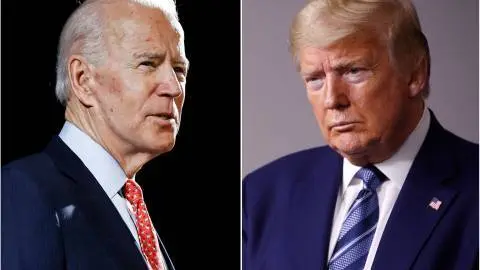US: A wary Fed keeps its powder dry
The minutes to the July 29th FOMC meeting are not especially reassuring. The commentary suggests an ongoing weak economic backdrop whereby inflation remains persistently low yet there is little inclination to offer additional imminent support to the economy
Weaker recovery, little inflation
The tone of the minutes indicate some concern over the state of the economy with the Fed’s staff economic outlook warning that the “projected rate of recovery in real GDP, and the pace of declines in the unemployment rate, over the second half of this year were expected to be somewhat less robust than in the previous forecast”. This was due to the renewed pick-up in Covid-19 cases and many states scaling back the reopening of their economies with “some high-frequency indicators that pointed to a deceleration in economic activity”.
Given this backdrop “the negative effect of the pandemic on aggregate demand was more than offsetting upward pressures on some prices stemming from supply constraints or from higher demand for certain products, so that the overall effect of the pandemic on prices was seen as disinflationary”.
In response to this situation and with uncertainty remaining “extremely elevated” the minutes noted “several participants suggested that additional accommodation could be required”. Furthermore, “some participants observed…strong fiscal policy support would be necessary to encourage expeditious improvements in labor market conditions."
However, amongst the broader committee there wasn’t the appetite to deliver anything despite agreement that inflation “would likely continue to run well below the Committee's 2 percent objective for some time”. Instead, all we got was the agreement from members that “over coming months it would be appropriate for the Federal Reserve to increase its holdings of Treasury securities and agency RMBS and CMBS at least at the current pace to sustain smooth market functioning".
The Fed really, really, really won’t be raising rates soon…
The long-awaited Review of Monetary Policy Strategy is coming. The minutes acknowledged that “refining the statement could be helpful in increasing the transparency and accountability of monetary policy” and stated it was “important to finalise all changes to the statement in the near future” – suggesting a potential September announcement.
The communication is seemingly going to be taking the form of outcome-based forward guidance. This means that the Fed would “maintain the current target range for the federal funds rate at least until one or more specified economic outcomes was achieved”. This, according to the minutes could use “thresholds calibrated to inflation outcomes, unemployment rate outcomes, or combinations of the two”. A possibility is that they could state they will not be raising interest rates until unemployment has fallen before 5% and inflation has consistently hit 2%, for example.
They did mention the possibility of incorporating a calendar-based approach in addition, indicating that the current target range would be maintained at least until a particular calendar date is possible. Either way this is unlikely to be massively market moving given the Fed’s “dot plot” of individual member forecasts suggests just two members expect rates to be raised before the beginning of 2023 – it will merely reinforce the message that the Fed really, really, really won’t be raising rates imminently, thereby anchoring the short end of the curve even more sturdily.
Lack of YCC enthusiasm keeps the curve steepening trend in play
The longer end is not so anchored. The limited enthusiasm for Yield Curve Control expressed in the minutes has served to reinforce the recent curve steepening trend. YCC is where the Fed could use focused asset purchases to limit the upside for Treasury yields at certain points of the curve. "Of those participants who discussed this option, most judged that yield caps and targets would likely provide only modest benefits in the current environment, as the Committee's forward guidance regarding the path of the federal funds rate already appeared highly credible and longer-term interest rates were already low."
Officials are worried about potential costs of YCC including "the possibility of an excessively rapid expansion of the balance sheet and difficulties in the design and communication of the conditions under which such a policy would be terminated". However, should yields start to rise more significantly – perhaps as Treasury issuance is ramped up to finance a record deficit – thereby pushing up mortgage rates and corporate borrowing costs, this option could be up for more discussion.
This publication has been prepared by ING solely for information purposes irrespective of a particular user's means, financial situation or investment objectives. The information does not constitute investment recommendation, and nor is it investment, legal or tax advice or an offer or solicitation to purchase or sell any financial instrument. Read more
Download
Download article
19 August 2020
More than just the Covid-19 response This bundle contains 6 Articles